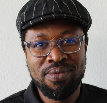Step Up and Step on It: Youth Day reflections from an ageing, former ANC YL activist
As always during the month of June, we celebrate Youth Month, in honour of the 1976 generation, which was led by dynamic young leaders such as Steve Biko and Tsietsi Mashinini amongst others.
Whilst it’s commendable that we see fit to honour the sacrifices that were made on our behalf by this great generation, I was left with a few questions as I was reflecting on the value of Youth Month and what it means to be a young South African in this day and age.
What can we learn from the likes of Biko and Mashinini as young South Africans, that will help us become relevant, impactful leaders in this current era? Why aren’t we seeing more young leaders emerging in the different sectors of South African society? Where are the Bikos of our age?
There are a few things we can learn as a generation from Biko et al. Firstly, leadership is about rising to the occasion and providing the courage and vision to address a specific need or issue in society.
Biko’s generation took the lead as Biko and his generation of young leaders took a stand against a system that was geared towards impoverishing and marginalising young black South Africans, to the benefit of a small elite.
They challenged the status quo and refused to accept things “as they are.” In other words, they refused to believe that the system that they grew up under was unchangeable and immovable, but instead sought to aggressively change it through their actions.
As young South Africans, we have an education system that is still geared towards the impoverishment and marginalisation of young black South Africans.
We have an economic system that is structured in such a manner that it keeps the majority of young black South Africans out of the formal economy. We have a labour system which has prevented the majority of young black South Africans from getting work.
We have a political system that has empowered a small black and white minority at the expense of the majority of South Africans (most of whom are young black people).
The question to be asked is: what are we going to do? Are we going to just keep complaining, moaning and whingeing or are we, like the Biko generation, going to rise up with courage, vision and conviction and seek to change the status quo?
Basically, do we want to be a generation of followers, waiting for someone else to provide a solution for us, or do we want to be a generation of leaders, who take the initiative, show some creativity and ingenuity, and lead society in bringing solutions to our most pertinent problems?
Biko and his generation were also a daring generation, not afraid to boldly go where others hadn’t gone before. In the words of the poet Ralph Waldo Emerson, “do not go where the path may lead, go instead where there is no path and leave a trail.”
This type of pioneering leadership attitude is what we need as a generation. The problem is that most of what we are taught in society is geared towards making us followers as opposed to leaders, conformists as opposed to trailblazing, nation-shaping contrarians.
Most universities teach people what to think, as opposed to how to think, as a simple example. Very few of the different learning centres of society teach us to “go where there is no path and leave a trail.” This is what Biko and the 1976 generation did and as a result they have left a trail that we are still trying to follow as a generation today.
South Africa needs an injection of fresh ideas, innovation, new products, inventions and institutions, and this can only happen when the youth of today take up the mandate to lead in the various sectors of society.
We need young entrepreneurs to emerge in order to build new industries and create jobs. We need young leaders in politics, in education, in the arts, in media to be opinion leaders etc. Like the Biko generation, young South Africans need to step up and step on it. The time to lead and make a difference is now.

